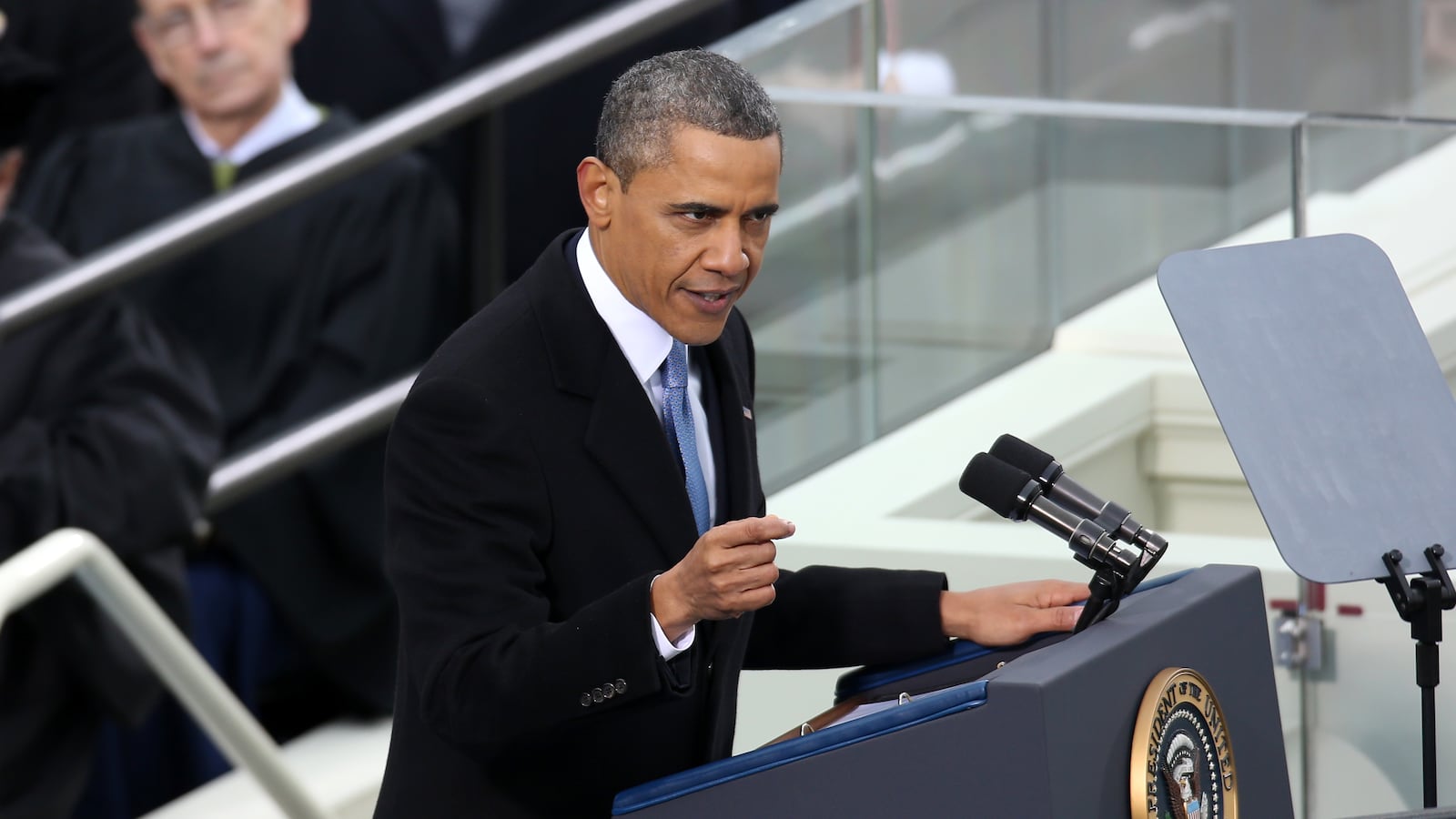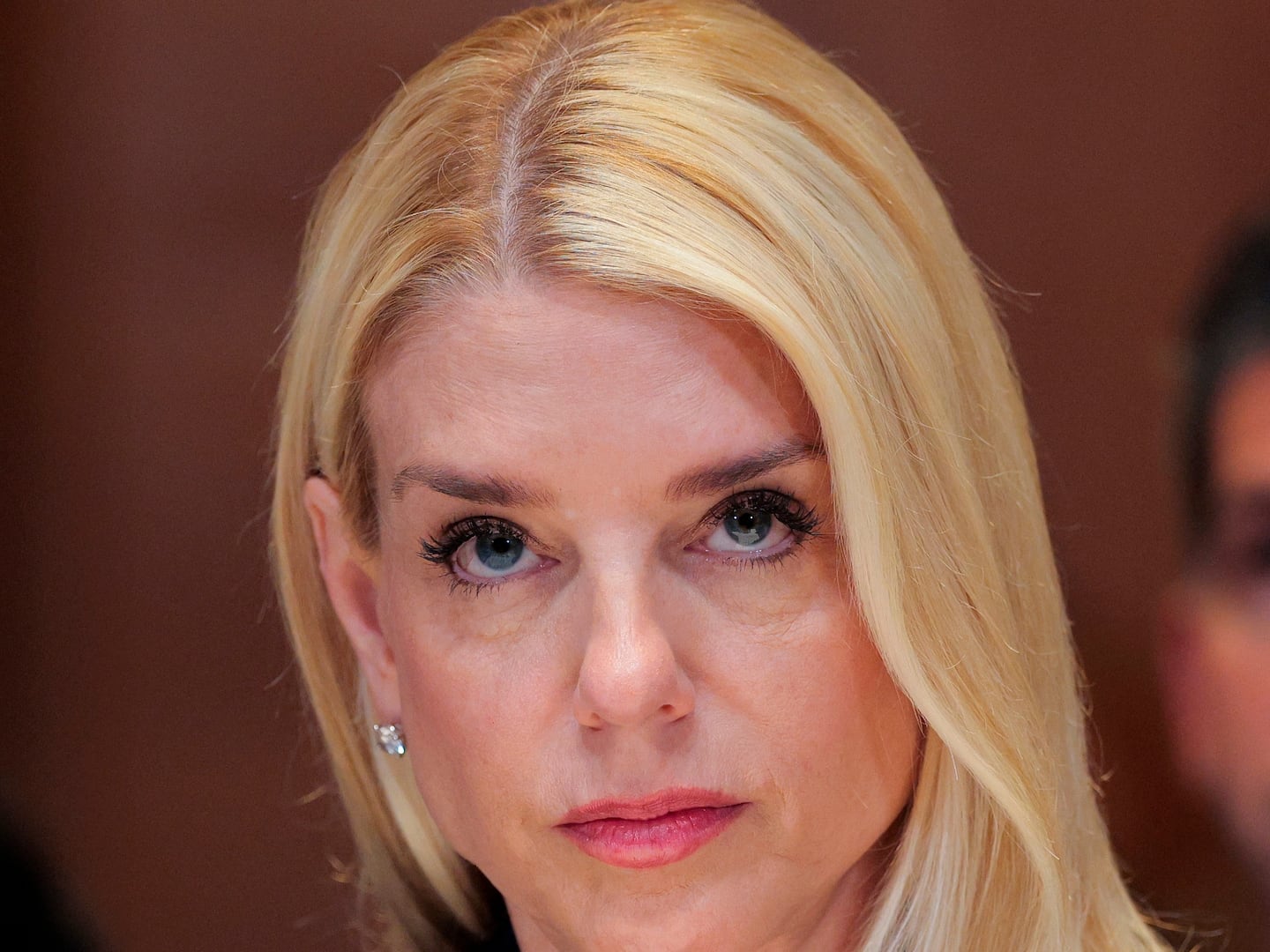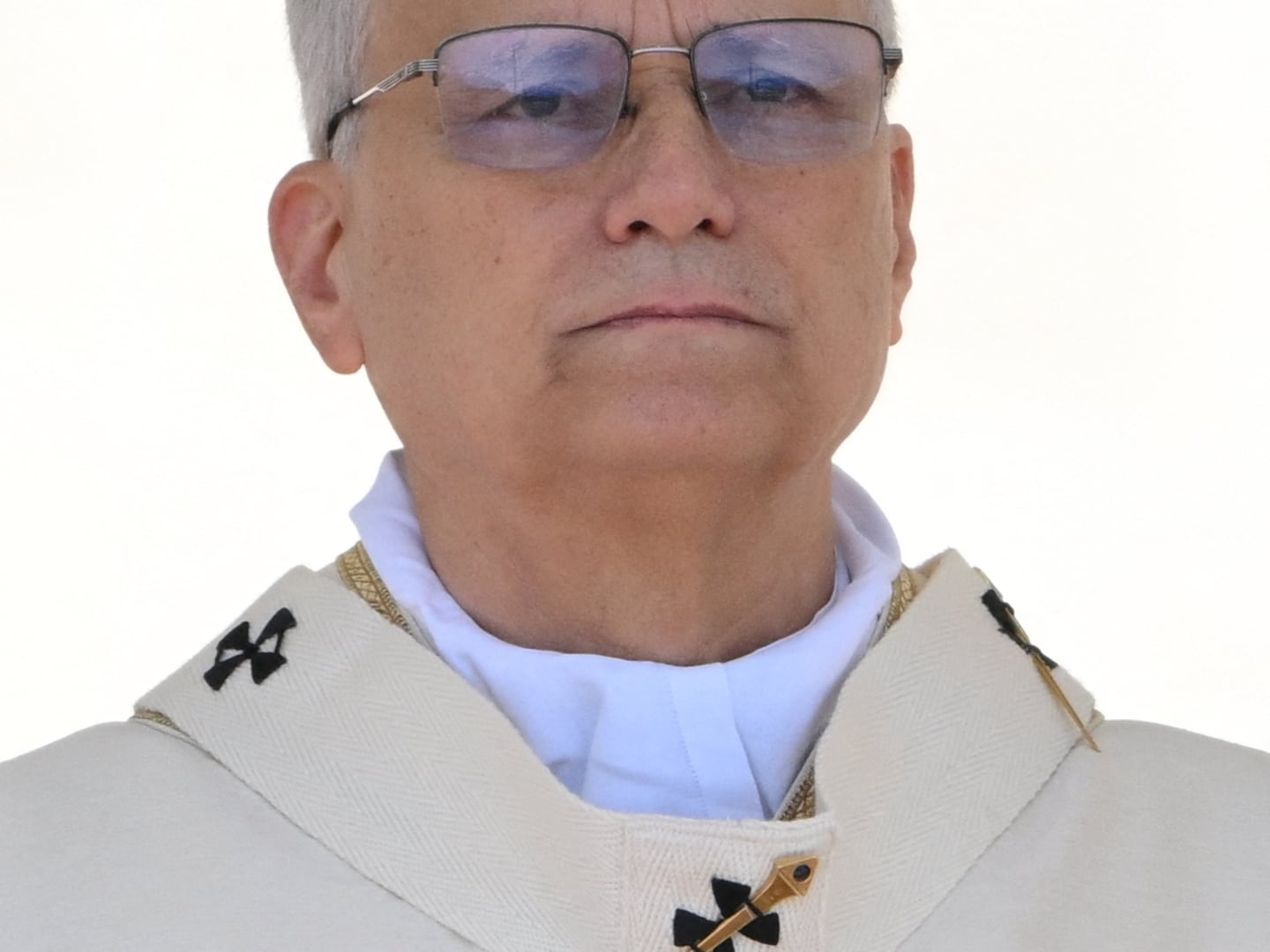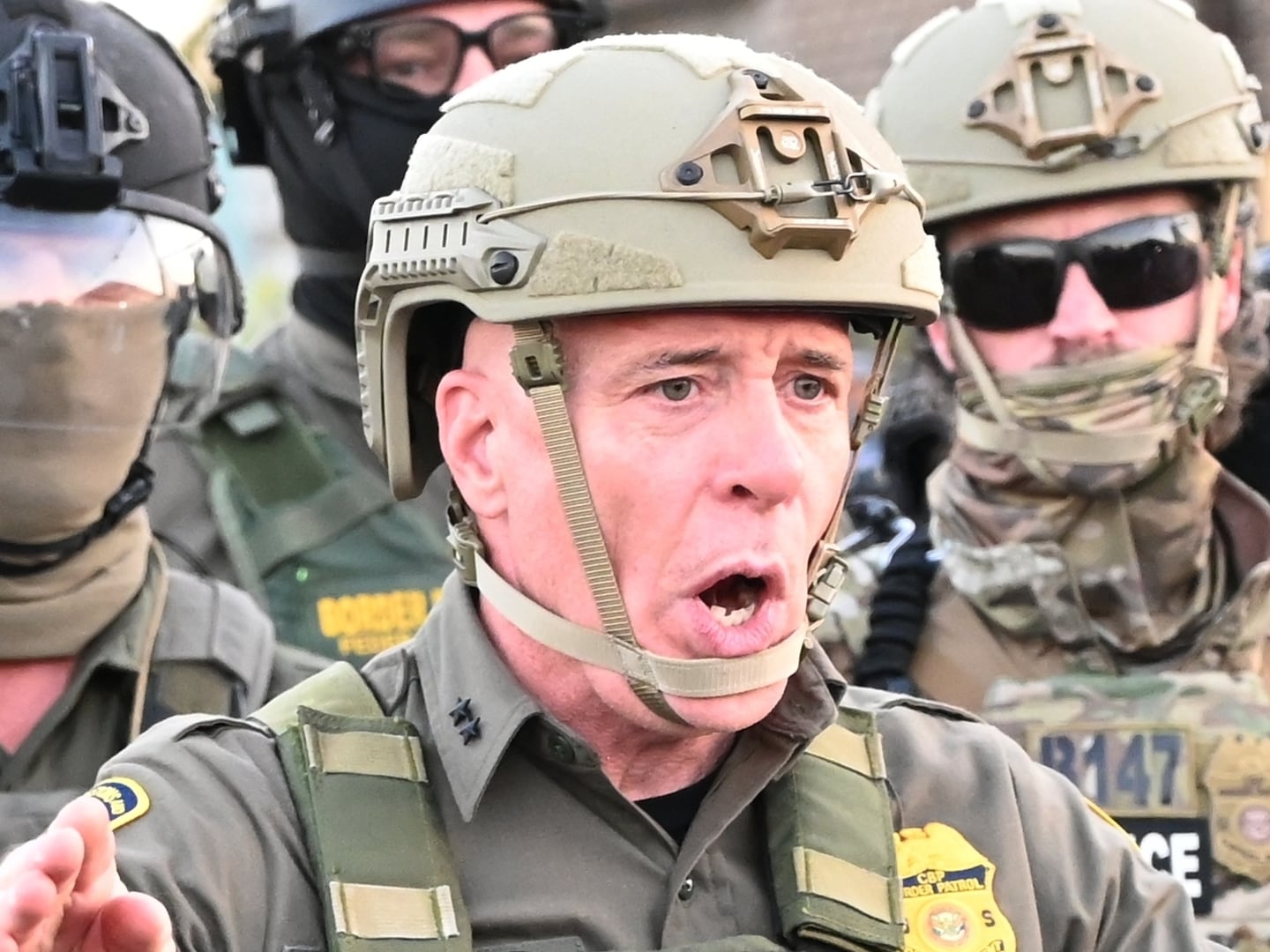Barack Obama's first inaugural address followed in the Wilson/FDR mode. It nodded to the president's agenda. Mostly, though, it attempted to set a tone for the administration to come.
And so, to all other peoples and governments who are watching today, from the grandest capitals to the small village where my father was born: know that America is a friend of each nation and every man, woman and child who seeks a future of peace and dignity, and we are ready to lead once more.
Second-term Obama, however, has discarded the lofty rhetoric and soaring themes. His inaugural address reverted to the more ancient purpose for the speech: to seize the initiative and push an agenda.
The message of today's speech in one headline: "A-bout Left!" The speech contained a sentence of prophylactic praise for initiative and enterprise, hard work and personal responsibility. It struck a note of bogus balance by rejecting the "fiction" that "government alone" could solve "all society's ills." Then it got down to the hard work of delivering a more full-throated defense of government activism than has been heard from any president since Lyndon Johnson half a century ago.
This was an inaugural written in "damn the torpedoes" mode. It rejected and repudiated the ideas that have dominated American political discourse since the Carter presidency. It rejected not only Reagan, but Clinton; it called not merely for government investment in infrastructure and education, but boldly defended the social insurance state more forcefully than it has been defended by any president in my lifetime.
We recognize that no matter how responsibly we live our lives, any one of us, at any time, may face a job loss, or a sudden illness, or a home swept away in a terrible storm. The commitments we make to each other – through Medicare, and Medicaid, and Social Security – these things do not sap our initiative; they strengthen us. They do not make us a nation of takers; they free us to take the risks that make this country great.
As for deficits and debt and sustainability, the president pinned all blame on one factor only: health care costs. No grand bargain here!
We must make the hard choices to reduce the cost of health care and the size of our deficit.
The president said "preserving our individual freedoms ultimately requires collective action." Pause for a minute to absorb that. The sentence could just as easily have read "community action," "actions we take together" or even "national action."
"Collective action"? I can well imagine this speech circulating through the White House senior staff, the political types slicing out the phrase again and again and again, only to see it reinserted by the writers and -ultimately - the president himself. "Collective action" in a Democratic inaugural address is every bit as deliberate a provocation as would have been the phrase "makers versus takers" in a Republican inaugural. It's a snap of the matador's red cape, a defiant baiting of Fox News and talk radio.
In the past, President Obama has spoken of the divisions between Republicans and Democrats as fundamentally unreal, subject to compromise and reconciliation by leaders of goodwill. Not this time. This time, he called his opponents out. Yes, many of them deserve it. Yet that does not make his words any less aggressive. Quite the contrary, actually:
We cannot mistake absolutism for principle, or substitute spectacle for politics, or treat name-calling as reasoned debate.
Those are not words intended to invite Republican cooperation, but to slam Republican non-cooperation; not to conciliate, but to confront. They were fighting words, and they portend a second term in which the president is fully as willing to take the fight to his opponents as they have been to take the fight to him.






